About Donation
Get the facts and choose to save lives
Tissue, eye and organ donation is a selfless gift that provides hope, offers healing and gives thousands of people a second chance at life each year. While more and more people are choosing donation at the end of life, the need continues to be overwhelming. Currently, more people are waiting for a transplant than there are organs available, and each year approximately 6,000 people in the U.S. die because they did not get the organ they need in time.
As proud Texans, we have the power to help each other and save lives! Get the facts below, and contact us if you still have questions.

The power of your decision
![]()
Up to 8 lives
can be saved when you donate your organs
![]()
2 People
may receive sight when you donate your corneas
![]()
Up to 75 lives
can be saved and healed when you donate your tissues
Donation FAQs
Who can be a donor?
Everyone has the right to make a personal decision about tissue, eye and organ donation. Registering as a donor is an important step to make your decision known. Regardless of your age, health, background, faith, gender identity, language or anything else, the decision is yours.
At the time of donation, medical suitability is determined to ensure the safety of donated organs. People of all ages and backgrounds can be donors, including those with common health conditions. So don’t rule yourself out – if you support donation, register today and tell your loved ones.
What can be donated?
One person can save 8 lives through organ donation, restore sight for up to 2 people through cornea donation, and save or heal up to 75 lives through tissue donation.
Organs include: heart, kidneys, pancreas, lungs, liver and intestines
Tissues include: corneas, eyes, skin, bone, heart valves, veins and tendons
Can you explain the donation process?
Organ donation is a complex process that is dependent on time and close coordination between the donor family, hospital staff and the organ donation specialists from the designated Organ Procurement Organization in your area who manage the entire process.
Your decision to register as an organ donor and give your organs, eyes and tissues to others in need is at the very start of the donation process. This decision is either made by you during your lifetime or by your family at the time of donation in the absence of your decision.
When a person’s life ends, they are declared legally and medically deceased. For organ donation to occur, the potential donor must be in a hospital and on a ventilator, which functions to mechanically keep the potential donor’s organs working after death. This ensures the organs are usable while authorization for donation is obtained, medical tests and examinations are performed to confirm what’s healthy enough to be transplanted, the organs are matched with waiting recipients, and recovery can take place. Organ recovery happens in an operating room at the donor’s hospital and then organs are transported to the recipient’s transplant center where the recipients are already waiting and prepped for their life saving surgery.
Depending on the circumstances, people who die outside of a hospital setting may still be candidates for cornea and tissue donation, which are equally important. In these cases, donation logistics are coordinated by the funeral home or medical examiner’s office and the appropriate tissue and eye banks.
Soon after donation, the donor’s family is provided with information about their loved one’s donation, and they may receive care and support from the donation agency in the months and years that follow if they choose. Donor families often say that their loved one’s donation brings them comfort during a very difficult time.
Looking for more detailed information on the process? Find it here.
Will registering to be a donor impact my medical care?
Absolutely not. Saving a person’s life is always the top priority for doctors, nurses, paramedics and emergency personnel, period. When you need medical care, every effort is made to save your life and no consideration is given to your donor registration status. It’s only after lifesaving efforts have been exhausted that donation becomes an option.
Additionally, access to the Donate Life Texas registry is strictly limited to the employees of organ, eye and tissue recovery organizations for the purpose of checking donation decisions. The professionals from the donation agency are completely separate from the medical professionals providing care in the hospital, and only become involved when death is imminent or declared.
Does donation impact funeral plans?
Funeral arrangements of your choice are possible, including an open casket funeral or viewing. The donor’s body is respected throughout the process and carefully prepared so that donation itself does not interfere with funeral plans.
Are there any costs to me or my family if I’m a donor?
No. All costs associated with tissue, eye and organ donation are covered by the recovery organization once death is declared and authorization for donation has been provided. Please note that the donor’s funeral costs remain the responsibility of the family.
Can I be compensated for my donation?
No. Donation is a gift that’s generously given after you’ve died to help other people in need. It is illegal to provide compensation for the gift of organs, eyes or tissues.
Does my religion support tissue, eye and organ donation?
All major religions support donation as a charitable and compassionate act that saves and enhances lives, or as a personal choice. For more specific information, check out Donate Life America’s list of religious faiths and their statements on donation. We encourage you to talk with your spiritual leader or faith community if you’re still looking for guidance.
Why should diverse communities consider donation?
While donation and transplantation impact all communities, there is a more prevalent need for transplantation among communities of color. In Texas, more than 40% of the people on the transplant waiting list are Hispanic, and more than 25% are African American.
Even though organs are not matched based on race or ethnicity, and people from different backgrounds can match, greater diversity in the number of people willing to donate organs means a greater impact on every affected community.
Can I choose who receives my organs or tissues?
Generally, no. The national organization responsible for maintaining the transplant waiting list – the United Network for Organ Sharing (UNOS) – matches donor organs with the waiting recipient who is the best medical match and at the top of the list. This ensures fairness and reduces the number of people who die waiting for an organ transplant. UNOS policy states that donation of an organ(s) cannot discriminate against a person or class of persons on the basis of race, national origin, religion, gender or similar characteristic.
Sometimes, a family may be able to donate their loved one’s organ(s) to a specific, named individual if they have the information about where the potential recipient is listed for transplant and they are a medical match. The donation professionals working with a family at the time of their loved one’s death can help explore this opportunity if it arises. Often, this happens when someone in the donor’s family is waiting for a transplant.
Can the rich or famous get priority access to donated organs?
No. Organs are matched based strictly on medical criteria and United Network for Organ Sharing (UNOS) policies to ensure equity. The goal is to reduce deaths on the transplant waiting list and match organs with the patient who is the sickest and best matches medically to the donor. Geography may be a factor because organs need to be transplanted as soon as possible following recovery, but celebrity or economic status is not.
Can donor families and recipients meet?
Donation is a private, confidential process. Following donation, donor families and transplant recipients receive basic information about one another to illustrate the impact of the gift. The recovery agency and recipient’s transplant center can help facilitate the process that allows for corresponding with one another and, sometimes, having a face to face meeting. This only happens if both the donor’s family and the recipient agree to connect with one another.
Can I be both an organ donor and a whole body donor?
In many cases, yes. It depends on the acceptance criteria of the research program in which you are interested. Organizations that accept organ and tissue donors take possession of the donor after organ and tissue recovery has occurred. Remember that you need to register ahead of time with a whole body donation program, which is separate from your decision to be a donor and registration with Donate Life Texas.
Ready to save lives?
Save lives during your lifetime
Living organ donation is when a person donates a kidney or part of their liver to another person during their lifetime. In response to the shortage of organs for transplantation, relatives, friends and even people with no prior relationship to their recipient are serving as living donors. Giving an organ in this way is a separate decision and process from donation after death. Your donor registration with Donate Life Texas does not include living donation.
The decision to be a living donor is a big decision that many donors find to be incredibly rewarding, and should be made only with full and complete consideration of the possible risks and benefits.
Donate Life Texas does not specialize in living donation, and can refer you to the following organizations for more information.
- United Network for Organ Sharing: Information about living donation
- The Living Bank: Education about living donation
- Información Información en español
- National Kidney Registry: Facilitating living donor transplants
- Alliance for Paired Kidney Donation: Information on paired kidney donation
